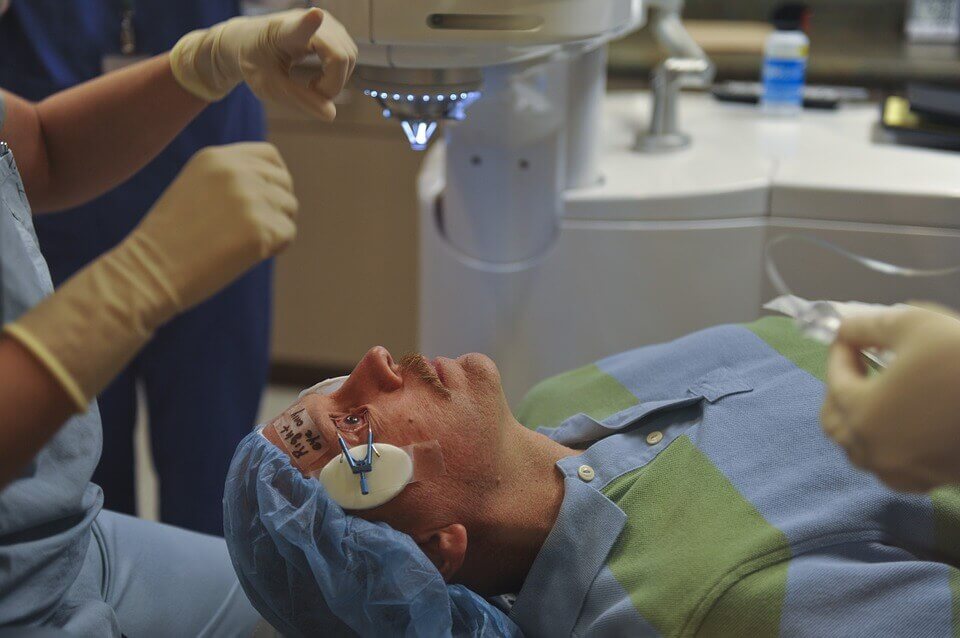- by SEO

For many individuals, the prospect of laser eye surgery evokes a mixture of hope for clearer vision and fear of potential pain. This fear often stems from misconceptions and uncertainty about what to expect during and after the procedure. Does laser eye surgery hurt? However, by gaining a deeper understanding of pain in laser eye surgery, individuals can transition from fear to clarity, paving the way for a more informed and confident approach to this transformative treatment.
Understanding Laser Eye Surgery:
Laser eye surgery, including procedures like LASIK (Laser-Assisted In Situ Keratomileusis) and PRK (Photorefractive Keratectomy), aims to correct refractive errors such as nearsightedness, farsightedness, and astigmatism by reshaping the cornea. These surgeries have revolutionized vision correction, offering patients the opportunity to reduce or eliminate their dependence on glasses or contact lenses. However, concerns about pain during the procedure remain a significant deterrent for many prospective patients.
Dispelling Misconceptions about Pain:
Preoperative Anxiety: Fear of pain in laser eye surgery often begins long before the procedure itself. Preoperative anxiety can amplify perceptions of pain and discomfort, leading individuals to anticipate the worst-case scenario. However, it’s important to recognize that modern laser eye surgery techniques are designed to minimize discomfort, and the vast majority of patients report minimal to no pain during the procedure.
Topical Anesthesia: Prior to laser eye surgery, the eye is numbed using topical anesthesia in the form of eye drops. This numbing agent ensures that patients do not feel pain or discomfort during the surgery. The effectiveness of topical anesthesia in minimizing pain during laser eye surgery is well-established, providing reassurance to patients undergoing the procedure.
Sensations During Surgery: While laser eye surgery is generally not painful, patients may experience sensations such as pressure or discomfort as the surgeon creates a corneal flap (in LASIK) or reshapes the cornea (in PRK). These sensations are typically brief and mild, and patients are closely monitored throughout the procedure to ensure their comfort.
Postoperative Discomfort: After laser eye surgery, some degree of discomfort or irritation is common during the initial stages of recovery. This may include sensations of dryness, grittiness, or light sensitivity. However, these symptoms are usually temporary and can be managed with over-the-counter pain relievers, prescription eye drops, and other postoperative care measures.
Navigating Pain in Laser Eye Surgery:
Education and Preparation: Knowledge is a powerful antidote to fear. By educating themselves about the laser eye surgery process, including the steps involved and what to expect during recovery, patients can alleviate anxiety and feel more confident in their decision to undergo the procedure.
Communication with the Surgical Team: Open and honest communication with the surgical team is essential for addressing any concerns or anxieties about pain in laser eye surgery. Patients should feel comfortable asking questions and discussing their fears, allowing the surgical team to provide reassurance and support.
Relaxation Techniques: Incorporating relaxation techniques such as deep breathing, meditation, or visualization can help calm nerves and reduce preoperative anxiety. Many surgical centers also offer amenities such as soothing music or comfortable surroundings to promote relaxation before and during the procedure.
Follow-up Care: Following the surgeon’s postoperative instructions diligently is crucial for a smooth recovery. This includes using prescribed eye drops as directed, attending follow-up appointments, and adhering to any activity restrictions or precautions outlined by the surgeon.
Understanding pain in laser eye surgery is the first step towards overcoming fear and uncertainty surrounding this transformative procedure. By dispelling misconceptions, educating themselves about the process, and communicating openly with their surgical team, individuals can transition from fear to clarity, empowering them to make informed decisions about their vision correction journey. Laser eye surgery offers the promise of clearer vision and enhanced quality of life, and with the right mindset and support, patients can embrace this opportunity with confidence and optimism.